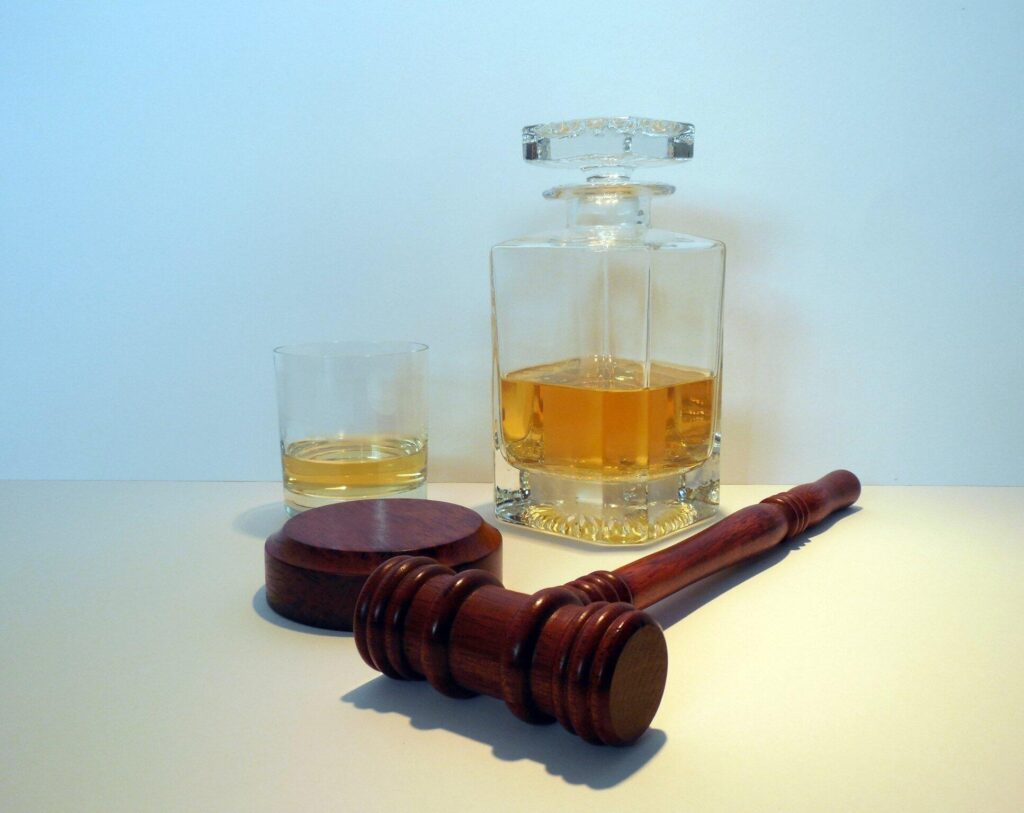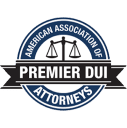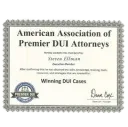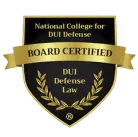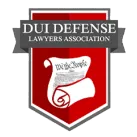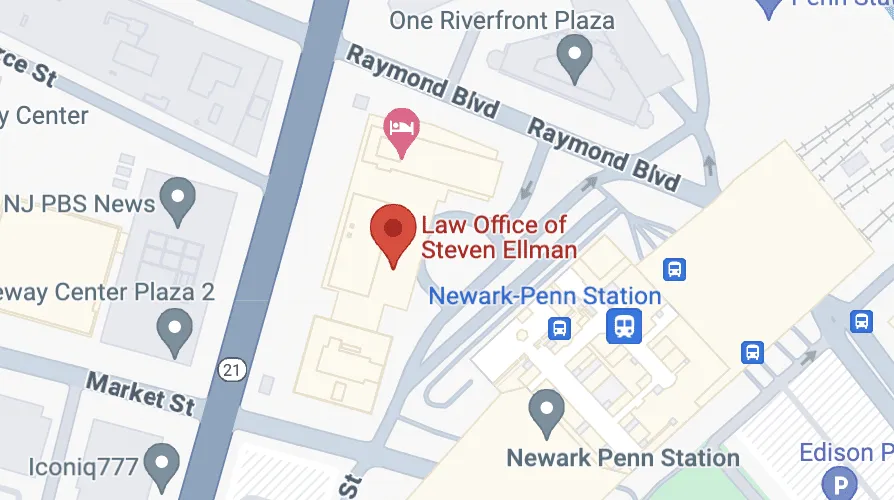Understanding the Legal Limit for Alcohol in NJ
Learn about the legal limit for alcohol in NJ and its implications. Know your limits and stay informed. Click here for detailed insights.
Alcohol consumption is widespread in the U.S., with more than three-fifths (62%) of adults drinking occasionally, according to a recent Gallup survey.
However, the line between responsible drinking and excessive alcohol consumption can be blurred sometimes, even in states with the strictest alcohol laws in the country.
If you’re a New Jersey driver, understanding the legal limit for alcohol in NJ is crucial to avoid legal consequences and protect yourself and others on the road. Keep reading below to stay informed about alcohol consumption laws in NJ and the potential consequences of driving under the influence.
Understanding the Legal Limit for Alcohol in NJ
In New Jersey, the legal Blood Alcohol Concentration (BAC) limits depend on the type of driver. Whether you’re a regular, underage, or commercial driver, knowing the specific legal limits that apply to you is crucial to staying safe and compliant with the legal BAC level NJ standards.
Standard BAC Limit
BAC measures the amount of alcohol in your bloodstream. It’s calculated as a percentage and law enforcement officers use this number to determine if you’re driving under the influence.
The legal BAC limit is 0.08% for drivers aged 21 and over. This means that if your BAC is 0.08% or higher, you’re legally considered intoxicated and can be charged with DWI (Driving While Intoxicated).
Your BAC can be affected by several factors such as:
- Number of drinks
- Body weight
- How fast you drink
- Your metabolism
Even if you don’t feel drunk, you could still reach the legal limit and face serious consequences.
Underage DUI Regulations
New Jersey’s zero-tolerance laws against underage drinking and driving mean that even one drink could result in a DUI charge. The legal BAC limit for drivers under age 21 is 0.01% or greater. This essentially means that any detectable amount of alcohol in your system while driving is illegal.
Commercial Drivers
Commercial drivers like truck or bus drivers are held to an even stricter standard than their regular counterparts due to the size and weight of the vehicles they operate. The legal BAC limit for individuals who hold a commercial license is 0.04%.
Commercial drivers face more severe penalties because they’re responsible for the safety of others on the road.
The Process of BAC Testing
When enforcing New Jersey DUI laws, law enforcement uses specific methods to determine if a driver has exceeded the legal BAC level in NJ. These methods help measure your blood alcohol content accurately and ensure your safety on the road.
Field Sobriety Tests
Field sobriety tests are often the first step law enforcement takes when they suspect a driver might be under the influence of alcohol. These tests are performed onsite and help officers evaluate your coordination, balance, and attention.
Here are a few popular field sobriety tests:
- The One-Leg Stand Test: You’re asked to stand on one leg and maintain balance for a set period
- The Horizontal Gaze Nystagmus Test: The officer checks the involuntary jerking of your eyes when you follow an object
- The Walk-and-Turn Test: You’re asked to walk in a straight line, heel to toe, and then turn on one foot
While these tests don’t directly measure your BAC, they help officers gauge if further testing is necessary.
Breath Testing Devices
If field sobriety tests raise suspicion, law enforcement will use a breath-testing device to measure your BAC. This device analyzes the alcohol content in your breath and provides a reliable estimate of your BAC. It’s quick, non-invasive, and widely used across the state.
The results from these devices are crucial in determining if you’ve exceeded the legal BAC level NJ. If your BAC is over the limit, you can be charged with a DWI or DUI and face significant penalties.
New Jersey’s implied consent laws require drivers to submit to NJ breathalyzer tests if suspected of drunk driving. Refusing to comply with this law results in penalties that can often be as severe, if not worse, than those for failing the test itself.
The Role of Law Enforcement Discretion
While BAC testing is crucial, officers often use their discretion to assess other signs of impairment that may suggest a driver is under the influence, even if their BAC is below the legal limit. Several factors can impact an officer’s decision-making process during a DUI or DWI stop, such as:
Physical Appearance and Behavior
Police officers are trained to observe physical signs of intoxication. The visual cues are legally considered “probable cause” and can be used as evidence in court, even without chemical test results. Signs may include:
- Bloodshot eyes
- Slurred speech
- Flushed face
- Difficulty concentrating
- The smell of alcohol
If an officer observes these indicators during a traffic stop, they may suspect impairment regardless of the driver’s BAC level.
Driving Behavior
Erratic driving is a common reason for DUI stops. Even small amounts of alcohol can significantly impact reaction time and judgment, affecting driving ability well before reaching the legal limit. Officers may observe behavior such as:
- Swerving between lanes
- Driving too slowly
- Failing to follow traffic signals
These actions may indicate driver impairment, even before any BAC test is conducted.
Refusal to Comply
A driver’s refusal to take a breathalyzer test or perform a field sobriety test can also influence an officer’s discretion. Refusing these tests may lead the officer to assume impairment and pursue charges accordingly.
Implications of Exceeding the Legal BAC Levels in New Jersey
Exceeding the legal alcohol limit while driving in New Jersey can lead to serious legal repercussions. These penalties vary depending on your BAC level and whether it is your first or subsequent offense. Understanding NJ DWI penalties can help you make safer choices when consuming alcohol and driving.
Here’s a breakdown of the specific penalties associated with different BAC levels:
BAC of 0.08% to 0.10%
- License Suspension: 3 months
- Imprisonment: Up to 30 days
- Fines and Fees: $250 to $400
- Surcharges: $1,000 per year for three years
- Intoxicated Driver Resource Center (IDRC): 12 to 48 hours of classes
- Ignition Interlock Device: Required for 6 months to 1 year after license restoration
BAC of 0.10% to 0.15%
- License Suspension: 7 months to 1 year
- Imprisonment: Up to 30 days
- Fines and Fees: $300 to $500
- Surcharges: $1,000 per year for three years
- IDRC Requirement: 12 to 48 hours of classes
- Ignition Interlock Device: Required during the suspension period and for an additional 6 months to 1 year following restoration
BAC of 0.15% or Greater
- License Suspension: 7 months to 1 year
- Imprisonment: Up to 30 days
- Fines and Fees: Over $3,000 (including various surcharges)
- IDRC Requirement: 12 to 48 hours of classes
- Ignition Interlock Device: Required during the suspension period and for an additional 6 months to 1 year following restoration
Additional Considerations
- Underage Drivers (BAC of 0.01% or Greater):
- License Suspension: 30 to 90 days
- Community Service: 15 to 30 days
- IDRC Requirement: Mandatory attendance at alcohol education programs.
- Fines and fees: Can exceed $3,000
Commercial Drivers (CDL holders):
- Legal BAC limit is lower at 0.04%
- Penalties are similar but may include longer suspensions and higher fines depending on circumstances
These penalties reflect New Jersey’s strict stance on DUI offenses, emphasizing public safety and deterrence against impaired driving.
Best Ways to Stay Below the Legal BAC Limit and Ensure Road Safety
Maintaining responsible drinking habits is key to staying within the legal limit for alcohol in NJ and ensuring road safety. Here are some practical tips to help you avoid exceeding the legal limit while still enjoying alcohol responsibly:
1. Know Your Limits
Everyone’s body processes alcohol differently, depending on factors like weight, age, and gender. Familiarize yourself with how alcohol affects you personally, and be mindful of your body’s response.
Remember that New Jersey’s legal limit for BAC is 0.08% for drivers aged 21+ and only 0.01% for drivers under 21.
2. Pace Yourself
Drinking too quickly can easily cause your BAC to rise to unsafe levels. Stick to a slower pace, allowing your body more time to process the alcohol.
A good rule of thumb is to consume no more than one standard drink per hour, giving your liver adequate time to metabolize the alcohol.
3. Alternate With Water
Staying hydrated is another simple yet effective way to manage your alcohol consumption. For every alcoholic drink, have a glass of water. This not only slows down your drinking but also reduces the risk of alcohol-induced blackouts.
4. Don’t Drink on an Empty Stomach
Eating foods rich in carbohydrates or fats before drinking can help mitigate alcohol absorption into your bloodstream, reducing your BAC. Eating while drinking will also help moderate the rate at which alcohol enters your system.
5. Plan for Transportation
If you plan to drink, avoid driving altogether. Use public transportation, call a taxi, or designate a sober driver. Taking this precaution ensures you won’t be tempted to drive, regardless of how much you’ve had to drink.
Hire an Experienced Lawyer for Your New Jersey DWI or DUI Case
Staying below the legal limit for alcohol in NJ is the best way to protect yourself and others from the serious consequences of drunk driving.
However, you may still face charges for driving under the influence of alcohol. In such situations, a seasoned attorney can help get your case dismissed and protect your future.
With over 39 years of experience, Attorney Steven Ellman is your trusted advocate for DUI/DWI and traffic violation cases in New Jersey. Contact The Law Office of Steven Ellman today to schedule your free case evaluation.

